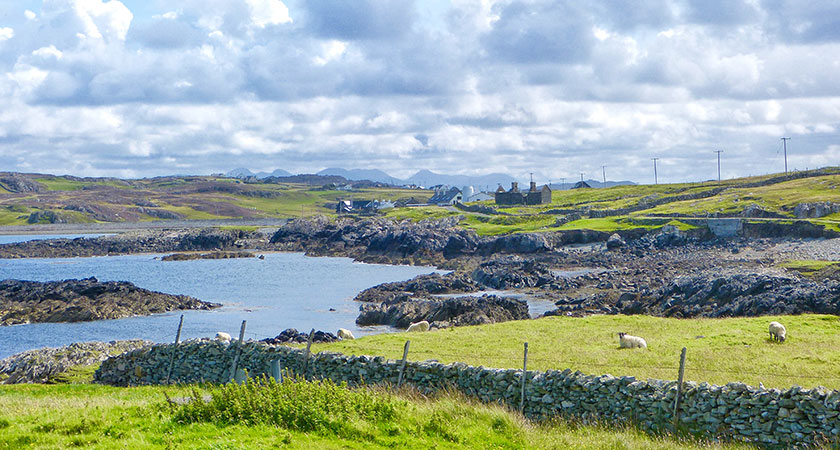HUMAN remains taken without consent from a monastery on an Irish island are to be returned more than 130 years after they were removed.
The 13 skulls taken from Inishbofin in 1890 have been stored at Trinity College Dublin (TCD) ever since.
Today, the university apologised and announced the remains would be returned to the island, off the coast of Co. Galway in the west of Ireland.
"I am sorry for the upset that was caused by our retaining of these remains and I thank the Inishbofin community for their advocacy and engagement with us on this issue," said TCD Provost Dr Linda Doyle.
Diary
The partial skeletal remains of 13 people were taken from St Colman's monastery on Inishbofin in July 1890 by ethnologist Alfred Cort Haddon and student Andrew Francis Dixon.
Dixon would later become Professor of Anatomy at TCD.
According to Haddon's record of events in his diary, the pair did not seek the community's consent before taking the remains.
The decision to remove them was likely due to the contemporary interest in the fields of craniometry and anthropometry.
The crania have remained at TCD ever since, however the decision to return them was approved today by the Board of the University.
It followed a period of research, analysis and public consultation overseen by the Trinity Legacies Review Working Group, in what was the first case to come under their consideration.
Further engagement will now take place with the Inishbofin community to identify an appropriate way of returning the remains.
'Community's wishes'
"We will now work with the community to ensure that the remains are returned in a respectful manner and in accordance with the community's wishes," added Dr Doyle.
"I want to thank everyone who engaged with the process that we have put in place to address issues of this nature.
"I am glad that we have made an evidence-based decision and that our process allowed all points of view to be heard."
Professor Eoin O'Sullivan, Senior Dean and Chair of Trinity Legacies Review Working Group, was pleased with the outcome of the group's first case.
"The evidence-based process Trinity has engaged in has, we believe, proved its worth," he said.
"The Trinity Legacies Review Working Group will continue to engage with Trinity's legacy issues on a case-by-case basis."


